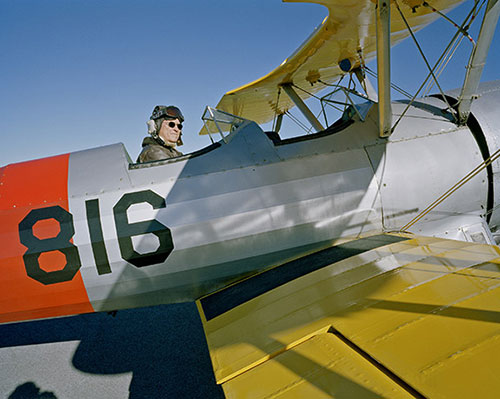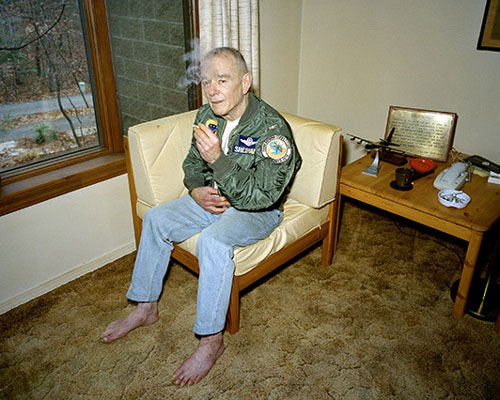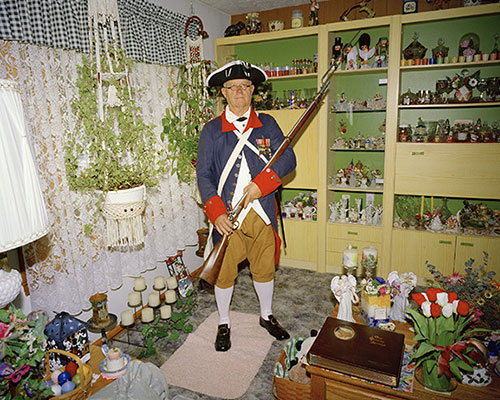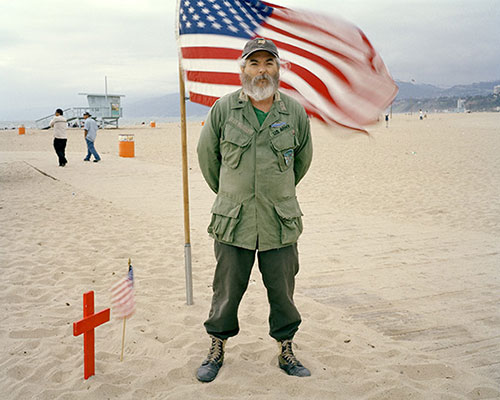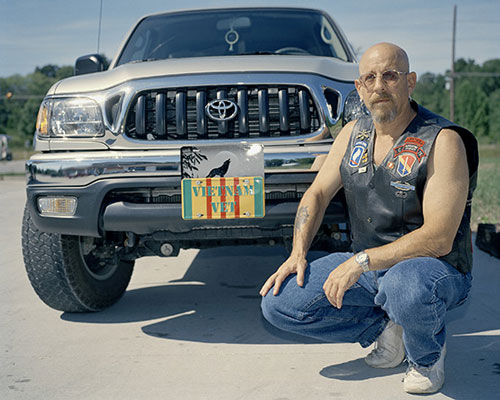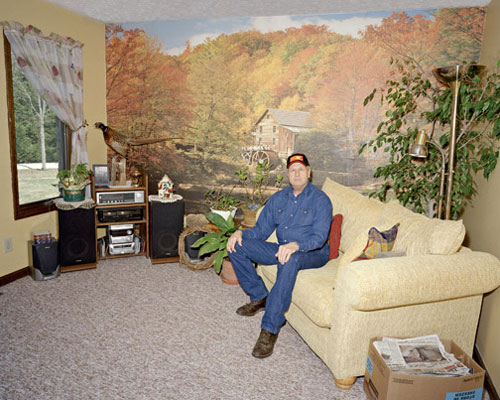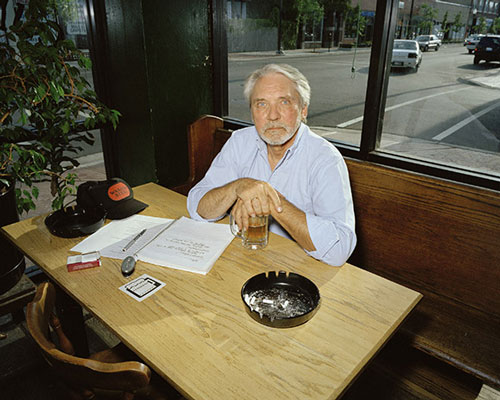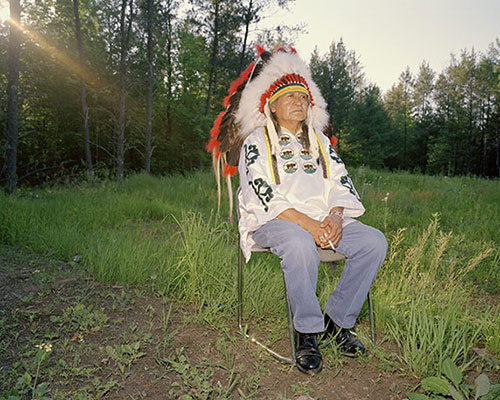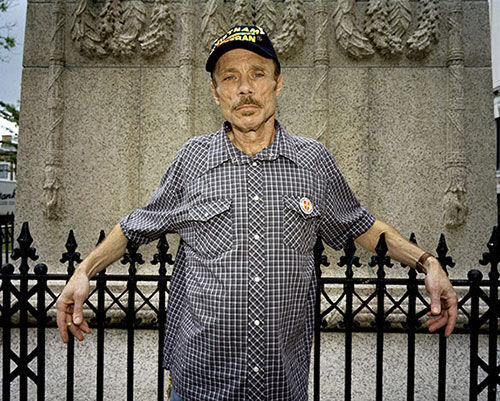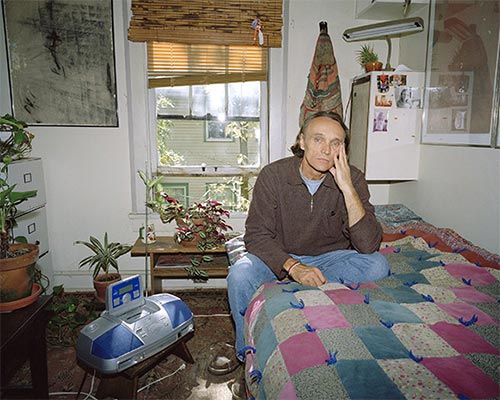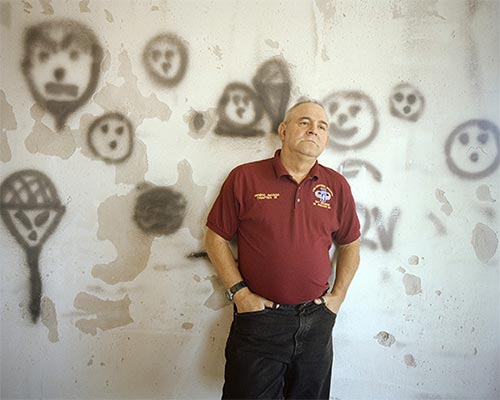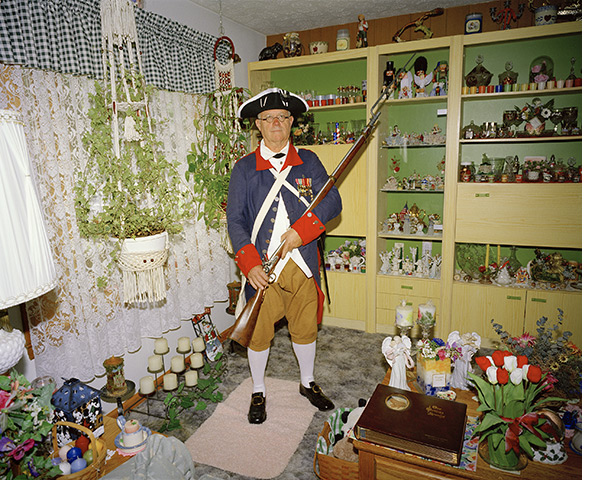James Claude Arnold
July 1966-February 1968
“I am proud to have served my country in Vietnam and the 20 years, 3 months and 9 days that I served in the military. I’m proud to have been a little part of attempting to give an entire country its freedom because while we were there they did have elections and there was more than one person on the ballot. So they did get a little taste of democracy. And through aid we did build schools, hospitals, orphanages-there was a lot of good done, at least we were attempting to. And if the politicians would have let the military run the war, I think it would have been a different world today. We could have won if our hands hadn’t been tied.
Americans have always been one step away from doing what’s supposed to be done and they’re doing it right now. I’m not going to compare Iraq to Vietnam. I’m going to compare the politics. Americans are always, ‘We don’t want to do that because we’re going to hurt somebody.’ What the hell is war? That little town over there in Iraq that’s giving us all that trouble, Falluja-let’s just go in one side and when we get to the other side there’s nobody left. I mean, nobody left.
Do you know what General Pershing did in the Philippines? He took a few Muslims and killed them; put them in a hole in the ground. Cut up two pigs, poured blood all over the corpses, put the pigs on top and buried them. He never had any more trouble because in the Muslim religion you can’t meet Allah if you’ve been in contact with pork without purificationÉ
A lot of us, including myself, came back from Vietnam as alcoholics. This may be hard to believe but in the time period I was over there, I don’t remember one person taking drugs. That was later in the ’70’s. Our problem was alcohol.
You know when it’s 110 degrees in the shade you’ve got to have some kind of liquid. Our water there was treated with bleach. It tasted exactly the way it smelled-I’ll guarantee it. So you could drink this water that smells like bleach or you could have beer. We would get beer in by the pallets. This was American beer they brought us when I was stationed on the island of Phu Quac off the coast of Cambodia. After you’ve been there for a while you learn not to drink anything cold. That puts your body in shock. We drank warm beer. By the time I got back home, I wanted cold beer. I also drank Jim Beam and scotch.
After Vietnam, I was sent to Korea. I was spending my entire military paycheck at the NCO club, plus maximum credit. I had one pair of civilian pants, one pair of civilian shoes, one civilian shirt. Everything else was military. I mean I was drinking everything. One day my First Sergeant came in and told me he was going to put me in the stockade if I didn’t straighten up. This was in Chun Chon, eight minutes from the DMZ-I went from one combat situation right into the next one. Plus I had transferred from the Navy to the Army. I decided that I had to do something because I knew I wanted a military career.
People realize today that alcoholism is a problem with all the homeless Vietnam veterans. They couldn’t lick it. But I can tell you how I did: my late wife helped me. When I met her in Korea-we got married in 1969-she helped me out by offering companionship, and by asking, ‘Do you really need that drink right now? Let me get you a coke instead.’ And by substituting beer for the hard liquor; plus I wanted to quit. I stopped drinking completely. Maybe on New Year’s Eve we’d pop the cork on a bottle of champagne and have one glass. Other than that I don’t drink. If I hadn’t stopped then professionally I was finished. If I had gone to the stockade, I was out. That First Sergeant did me a favor. His name was A. D. Pridgen and if I knew where he was today I’d hug him and kiss him. I’ll never forget him as long as I live.
Anyone with a drinking problem they’ve got to want to do something about it. You can’t force someone to do something they don’t want to do. If I see someone at a bar that’s got a drinking problem, I don’t try to put my views upon him. That’s one thing that everybody has fought for in this country-the right to make choices in your own life. You may not be right in what you want to do, but you’ve got the freedom to do it.”

